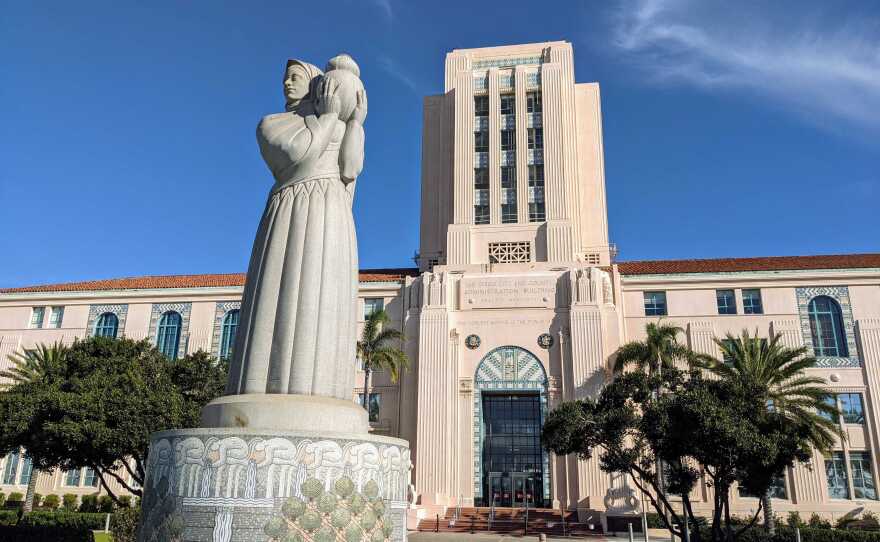Tempers flared during a San Diego County Board of Supervisors meeting this week over enforcement of vaccine and mask mandates.
People who attended the meeting had strong feelings and a lot to say, including threats toward elected officials.
“You need to know, we’re coming for you, too,” one commenter said.
“Pound sand, Nathan Fletcher,” another said, referring to one of the supervisors.
RELATED: Scripps Health Facing Workforce Shortages Amid Surge In COVID-19 Cases
There is a line between someone’s right to freedom of speech and a threat that could land them in legal trouble, said Matthew Halgren, a First Amendment attorney with the California law firm Sheppard Mullin.
“The general rule is that the First Amendment protects our right to speak however we wish, but there are certain categories of speech that are excluded from that protection and one of those categories is called ‘true threats,’” Halgren said.
A true threat can be a spoken or written statement threatening death or serious injury, and no physical action is required.
“The person who makes the threat has to intend that the victim take the threat seriously and the victim has to actually and reasonably take the threat seriously,” Halgren said.
More than 100 people spoke during the meeting and each speaker was given two minutes. Public comment is required by California law at government meetings, but the comments do not have to be civil.
Still, Carl Luna, the director of the Institute for Civil Civic Engagement, said civility at these meetings should be the goal to promote better communication between the public and elected officials.
“Civility is basically upholding the social contract. You have rights. I have rights,” he said. “I’ll respect your rights and if we have a disagreement we’ll take it to a third party that we pick and we will now adhere to what they rule.”
Luna believes the pandemic has influenced our behavior.
“I think the whole country has gone through PTSD because of COVID and as we’ve gone back out in the world we forgot all the stuff our first grade teachers and kindergarten teachers taught us about how to deal with each other nicely,” he said. “You don’t say anything to others that you don’t want them to say to you.”
According to Luna, this trend toward hostile speech and behavior could continue, unless schools begin to teach civility.
“Give students the tools they need when they run into people they don’t agree with, you have at least a constructive dialogue or at least not a disruptive dialogue to try to resolve disputes,” he said.






